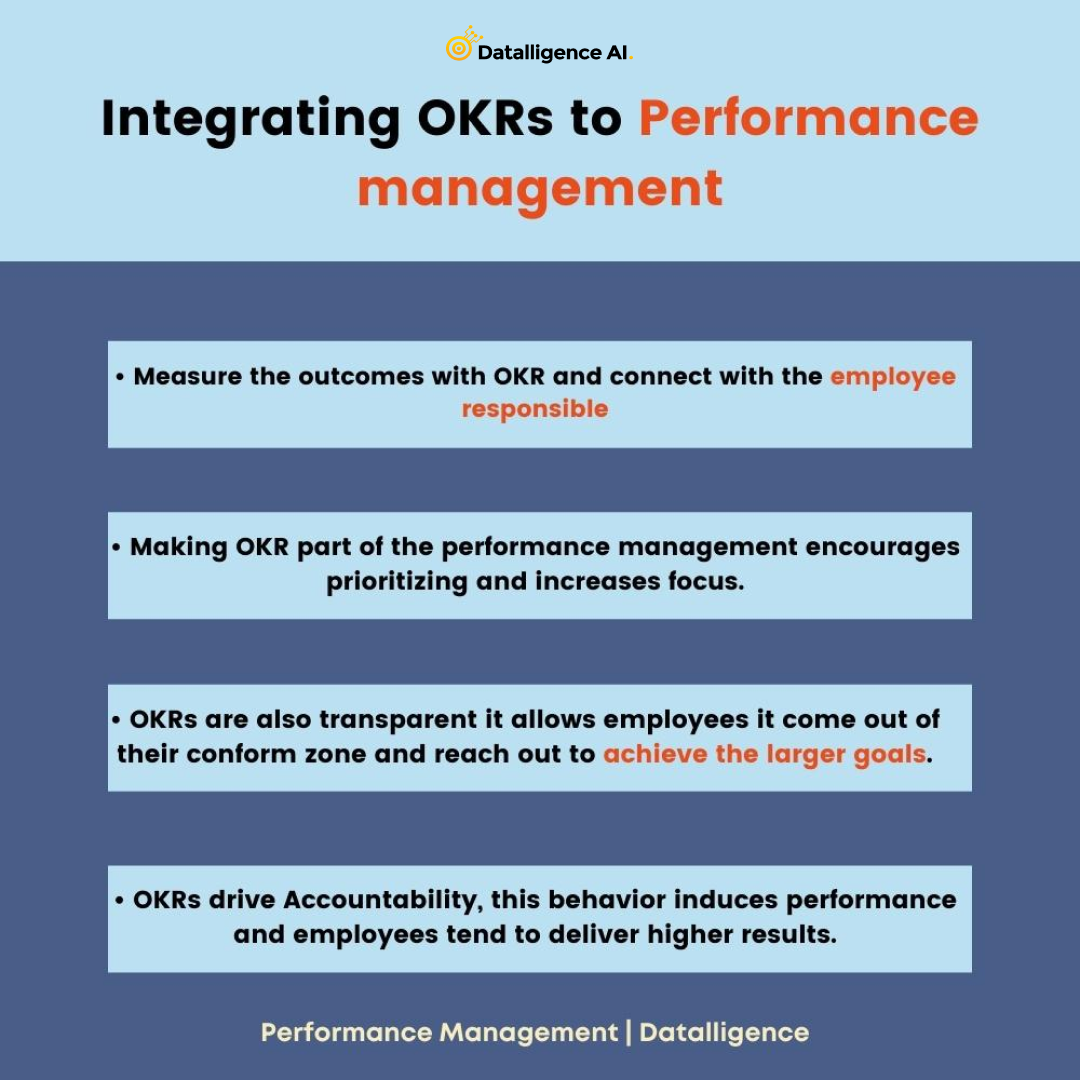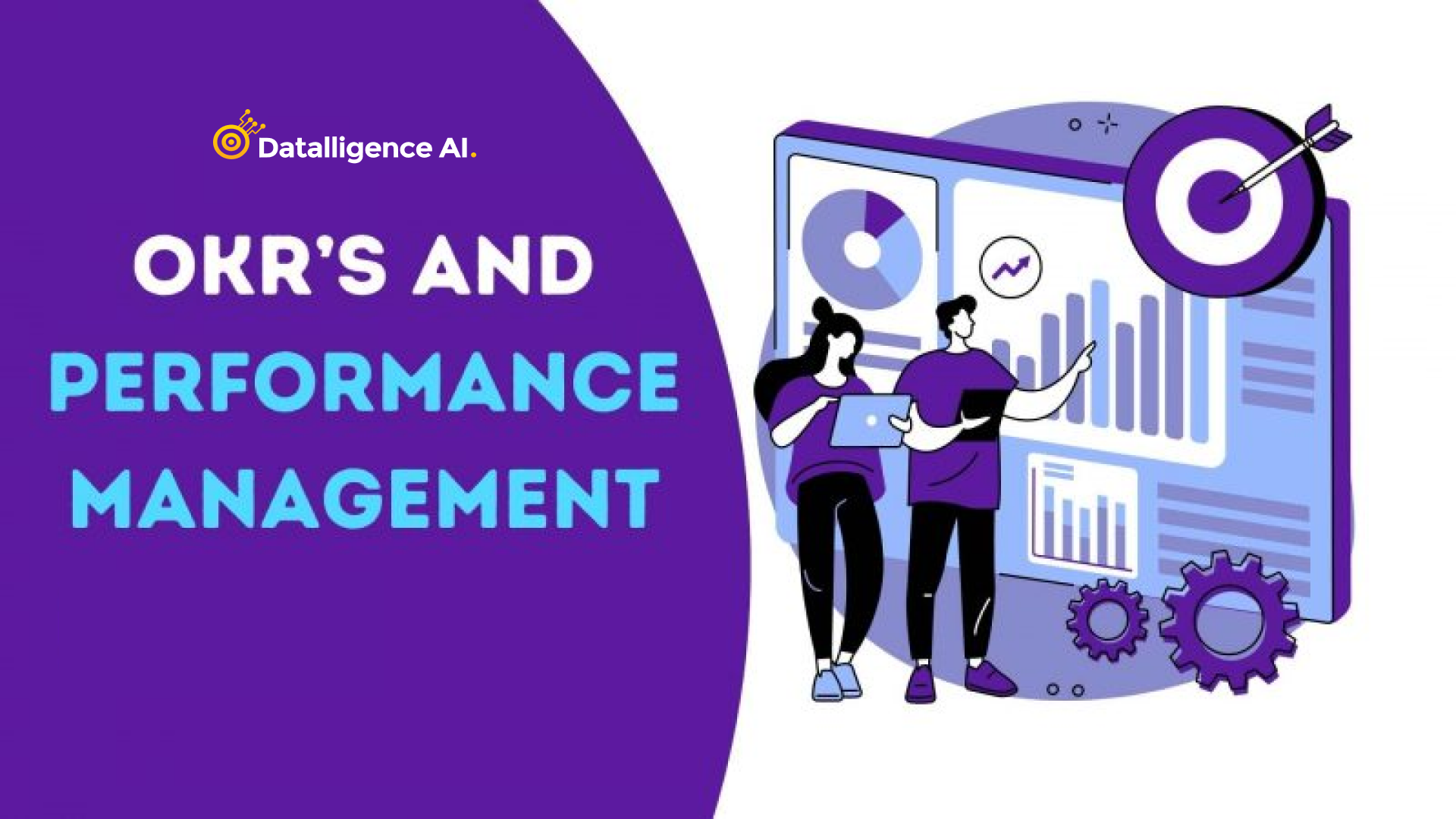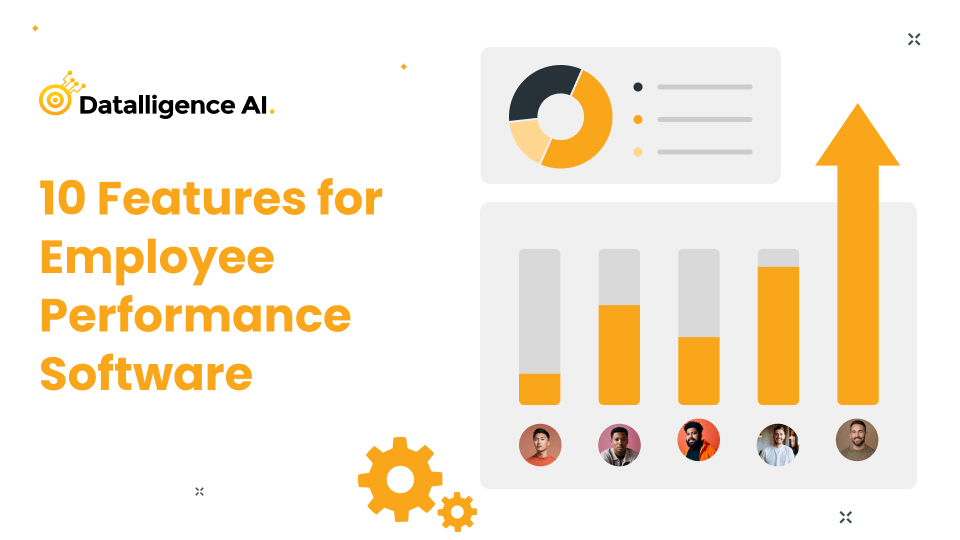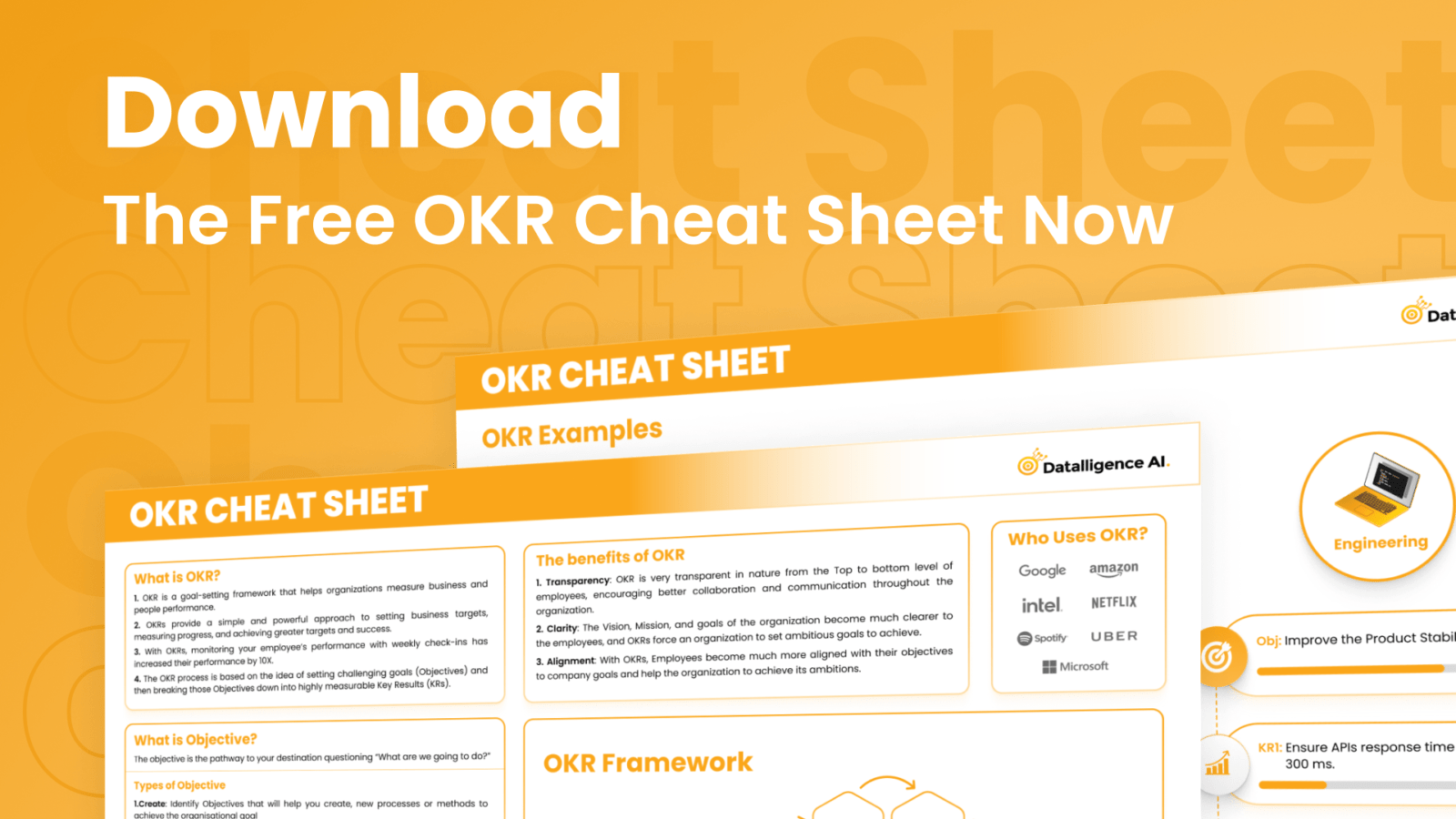Most organizations have this question about Objectives and Key Results. Is OKR similar to performance reviews? Before we dwell deep in this let us understand both OKRs and Performance management separately.
OKRs
OKRs are a goal-setting and tracking methodology that helps organizations set measurable objectives. These OKRs help organizations to understand the “Whats” and the “Hows” to determine the resources required to deliver. OKRs are Ambitious and audacious and drive the team to stretch and achieve the goal.
With OKRs, the MBOs come full circle. OKR can decouple performance, and pay as a continuous performance management model can be implemented through an OKR program. Additionally, in OKRs, even employees can set their own goals and take responsibility for those goals because of its down-up goal-setting compatibility. This also decreases the subjectivity reviews of the manager.
The main advantage of the OKR framework is that it promotes employee engagement and promotes feedback. Teams stay more focused and collaborative while using OKRs.
Performance Management
Performance reviews work independently and they measure the individual performance for a specific period. Feedback is given and key improvement areas are identified. The result of such performance reviews is tied with compensation.
Before explaining what performance management is or how it can help to improve the situation, we are going to have a detour and know why exactly employees are not for the idea of pay/compensation based on performance. This is because such situations always demand more and more work for any opportunity of compensation. And the year-end appraisal meetings are always an uncomfortable affair for both employee and manager, as it most times involves a feeling of dissatisfaction among the employees.
Why is Goal setting important?
The goal-setting, if you think about it, has been a part of the human strategy for many years (longer than we can find out), much less a part of the enterprises. If you think about it, it is an act of bargaining for a better future by sacrificing the present. So, when enterprises were revolutionizing business management in the 20th century, Peter Drucker introduced “Management by Objective” (MBO), which was a strategic management model to create an ideal environment for enterprises to reach their objectives. MBOs were precursors to the OKRs
Rating-less Review
Despite the focus being taken away from pay, the model still measures compensation with quantitative performance. And it is found that the managers waste more time in discussing ratings in the time that can be used to discuss performance. Enter “Qualitative review” as opposed to quantitative review with a rating less approach. The appeal of the qualitative review is the fact that the employee with the most goals completed may not be the top performer. Here, competencies that can be quantified, like empathy, organizational advocacy, accountability, composure, etc., are taken into account for compensation discussion. Qualitative review can be thus a great tool for the continuous performance management strategy. According to Bersin by Deloitte, the qualitative review process lowered the voluntary turnover by 31%.
Integrating OKRs to Performance management

Every organization would want to evaluate individual performance at the same time they would evaluate if the organization’s performance as well. If these two are not together then the entire purpose of the evaluation is lost.
As OKRs are collaborative, it would be an effective measure to see how an employee is progressing towards the goal. How much have they stretched to achieve the goal? OKRs tend to help teams to initiate conversations around performance, hence becoming an ongoing evaluation than a year-end process.
The Outputs measured can be linked to the outcome, which is OKRs. Below are the few discussions that could enable healthy conversations during retrospective meetings
- The main challenges faced while achieving OKRs
- Lessons learned during the execution
- Best practices adopted while completing OKRs
- Reflect on the past quarter and understand the performance data
- Evaluate the performance of the individual and team objectives to analyze the strength and weaknesses
Having discussed the point we can establish the performance connect with OKRs. While doing so managers can recognize and share feedbacks bidirectionally which increases engagement.
Making OKR part of the performance management encourages prioritizing and increases focus.
OKRs are also Transparent it allows employees it come out of their conform zone and reach out to achieve the bigger goals.
OKRs drive Accountability, this behavior induces performance and employees tend to deliver higher results.
Tips to make it successful
- Employees should Checkin regularly and managers review the check-ins.
- Track progress and provide continuous support and feedback
- Initiate regular 1:1 meetings to keep the team motivated and address their concern
To wrap it up
Though OKRs will not be a replacement for performance reviews, they can work together wonderfully
The negative cred of the appraisal review can be eliminated by employing continuous performance management, which will separate the conversation of compensation and performance separately. Complementing it with the qualitative review strategy can help you create more distance between compensation and performance. And the OKR system is the best program to implement continuous performance management effectively in your company. Therefore reach us to try the trial version of the Datalligence OKR and to get a quote for the software.
If you are interested in more insight on OKRs, continuous performance management, check out our blog archive and stay tuned for the new blog updates.










